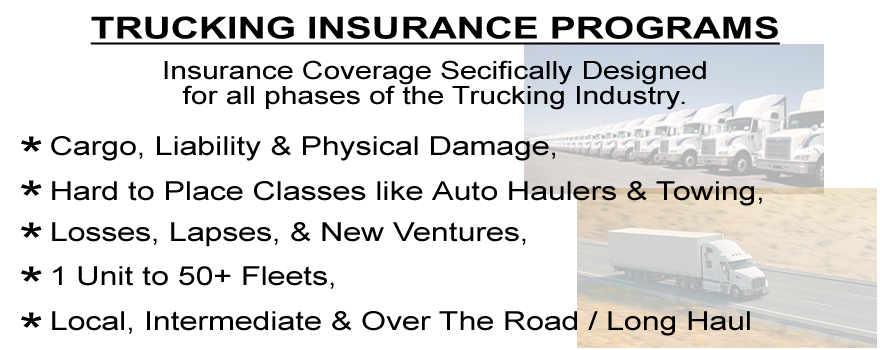Monument Commercial Insurance Services, Inc. © 2006 - 2022
:: ANTI-SPAM :: COPYRIGHT NOTICE :: PRIVACY ::
:: TERMS OF USE :: LICENSED SERVICE STATES :: SUBMISSION NOTICE ::


Call 800.764.7507 To Get A Quote
" Better Rates, Better Coverage, Better Insurance"

AZ INSURANCE LICENSE #: 973212
CA INSURANCE LICENSE #: 0F30735
FL INSURANCE LICENSE #: L077389
ID INSURANCE LICENSE #: 687310
LA INSURANCE LICENSE #: 519737
MD INSURANCE LICENSE #: 3000152708
MI INSURANCE LICENSE #: 0081085
NM INSURANCE LICENSE #: 100008955
OK INSURANCE LICENSE #: 3000903826
TX INSURANCE LICENSE #: 1760083
CONTACT US
PHONE: (800) 764-7507 - FAX: (661) 823-1102
EMAIL: info@mcisinc.com - COI REQUESTS: certificates@mcisinc.com
Compare Workers Compensation Insurance Quotes from our 25+ Nationally Recognized, Top Rated Carriers.
WORKERS COMPENSATION INSURANCE
Compare Rates and Coverage For Group Medical From All Carriers in Your Area. All National Carriers Like Aetna, Anthem Blue Cross, Blue Shield, Healthnet, United Healthcare and More...
Compare Rates for Professional Liability, E & O, D & O, Medical Malpractice Insurance from Numerous Top Rated Carriers.
Our vast network of insurance companies allows our clients a single point of contact for all their Commercial Insurance needs. Nationally Recognized, Financially Strong Carriers Offering The Lowest Rates Obtainable With Superior Limits.
Get Insurance Coverage For TRUCKERS AUTO LIABILITY, CARGO, & PHYSICAL DAMAGE! With Access 20+ Carriers writing Local, Intermeadiate and Long Haul / Over The Road Truckers. IF you are not with us most likely YOU ARE OVER PAYING!
Additional Business Insurance Policy Types Available...
AIG
American Safety
Arrowhead
Burlington-Guilford
Century Surety
CNA
CoverX
Evanston
Gemini-Vela
General Star
Golden Bear
Hartford
Lexington
Liberty International
Liberty Surplus
Lloyds of London-SHG
Markel
Maxum
RLI
Safeco
Scottsdale
Travelers
United National
Zurich
Mt. Hawley
National Environmental
National Liberty & Fire
Nevada Risk
No. American Capacity
ProBuilders
Some of the Nationally Recognized Carriers Where We Place Insurance Coverage
Commercial Auto Liability - Truckers Auto Liability - Physical Damage - Cargo Insurance Coverage
Coverage Available Summary
The consumer may be protected with different coverage types depending on what coverage the insured purchases.
In the United States, liability insurance covers claims against the policy holder and generally, any other operator of the insured’s vehicle, provided they do not live at the same address as the policy holder and are not specifically excluded on the policy. In the case of those living at the same address, they must specifically be covered on the policy. Thus it is necessary for example, when a family member comes of driving age they must be added on to the policy. Liability insurance sometimes does not protect the policy holder if they operate any vehicles other than their own. When you drive a vehicle owned by another party, you are covered under that party’s policy. Non-owners policies may be offered that would cover an insured on any vehicle they drive. This coverage is available only to those who do not own their own vehicle and is sometimes required by the government for drivers who have previously been found at fault in an accident.
Generally, liability coverage does extend when you rent a car. Comprehensive policies ("full coverage") usually also apply to the rental vehicle, although this should be verified beforehand. Full coverage premiums are based on, among other factors, the value of the insured’s vehicle. This coverage may not apply to rental cars because the insurance company does not want to assume responsibility for a claim greater than the value of the insured’s vehicle, assuming that a rental car may be worth more than the insured’s vehicle. Most rental car companies offer insurance to cover damage to the rental vehicle. These policies may be unnecessary for many customers as credit card companies, such as Visa and MasterCard, now provide supplemental collision damage coverage to rental cars if the transaction is processed using one of their cards. These benefits are restrictive in terms of the types of vehicles covered.
Liability
Liability coverage provides a fixed dollar amount of coverage for damages that an insured becomes legally liable to pay due to an accident or other negligence. For example, if an insured drives into a telephone pole and damages the pole, liability coverage pays for the damage to the pole. In this example, the insured also may become liable for other expenses related to damaging the telephone pole, such as loss of service claims (by the telephone company).
Liability coverage is available either as a combined single limit policy or as a split limit policy:
Combined Single Limit
A combined single limit combines property damage liability coverage and bodily injury coverage under one single combined limit. For example, an insured with a combine single
liability limit strikes another vehicle and injures the driver and the passenger. Payments for the damages to the other driver's car, as well as payments for injury claims for the driver
and passenger, would be paid out under this same coverage.
Split Limits
A split limit liability coverage policy splits the coverages into property damage coverage and bodily injury coverage. In the example given above, payments for the other driver's
vehicle would be paid out under property damage coverage, and payments for the injuries would be paid out under bodily injury coverage. Note that bodily injury liability coverage is
also usually split as well into a maximum payment per person and a maximum payment per accident.
Collision
Collision coverage provides coverage for an insured's vehicle that is involved in an accident, subject to a deductible. This coverage is designed to provide payments to repair the damaged vehicle, or payment of the cash value of the vehicle if it is not repairable. Collision coverage is optional. Collision Damage Waiver (CDW) is the term used by rental car companies for collision coverage.
Comprehensive
Comprehensive (a.k.a. - Other Than Collision) coverage provides coverage, subject to a deductible, for an insured's vehicle that is damaged by incidents that are not considered Collisions. For example, fire, theft (or attempted theft), vandalism, weather, or impacts with animals are just some types of Comprehensive losses.
Uninsured/Underinsured Coverage
Uninsured/Underinsured coverage, also known as UM/UIM, provides coverage if another at-fault party either does not have insurance, or does not have enough insurance. In effect, your insurance company acts as at fault party's insurance company.
In the United States, the definition of an uninsured/underinsured motorist, and corresponding coverage's, are set by state laws.
Loss of Use
Loss of Use coverage, also known as rental coverage, provides reimbursement for rental expenses associated with having an insured vehicle repaired due to a covered loss.
Loan/Lease Payoff
Loan/Lease Payoff coverage, also known as GAP coverage or GAP insurance, was established in the early 1980s to provide protection to consumers based upon buying and market trends.
Due to the sharp decline in value immediately following purchase, there is generally a period in which the amount owed on the car loan exceeds the value of the vehicle, which is called "upside-down" or negative equity. Thus, if the vehicle is damaged beyond economical repair at this point, the owner will still owe potentially thousands of dollars on the loan. The escalating price of cars, longer-term auto loans, and the increasing popularity of leasing gave birth to GAP protection. GAP waivers provide protection for consumers when a "gap" exists between the actual value of their vehicle and the amount of money owed to the bank or leasing company. In many instances this insurance will also pay the deductible on the primary insurance policy. These policies are often offered at the auto dealership as a comparatively low cost add on that can be put into the car loan which provides coverage for the duration of the loan.
Consumers should be aware that a few states, including New York, require lenders of leased cars to include GAP insurance within the cost of the lease itself. This means that the monthly price quoted by the dealer must include GAP insurance, whether it is delineated or not. Nevertheless, unscrupulous dealers sometimes prey on unsuspecting individuals by offering them GAP insurance at an additional price, on top of the monthly payment, without mentioning the State's requirements.
In addition, some vendors and insurance companies offer what is called "Total Loss Coverage." This is similar to ordinary GAP insurance but differs in that instead of paying off the negative equity on a vehicle that is a total loss, the policy provides a certain amount, usually up to $5000, toward the purchase or lease of a new vehicle. Thus, to some extent the distinction makes no difference, i.e., in either case the owner receives a certain sum of money. However, in choosing which type of policy to purchase, the owner should consider whether, in case of a total loss, it is more advantageous for him or her to have the policy pay off the negative equity or provide a down payment on a new vehicle.
Car Towing Insurance
Car Towing coverage is also known as Roadside Assistance coverage. Traditionally, automobile insurance companies have agreed to only pay for the cost of a tow that is related to an accident that is covered under the automobile policy. This had left a gap in coverage for tows that are related to mechanical breakdowns, flat tires and running out of gas. To fill that void, companies started to offer the Car Towing coverage, which pays for non-accident related tows.
Motor Truck Cargo
Motor Truck Cargo insurance (Cargo) provides insurance on the freight or commodity hauled by a For-hire trucker. It covers your liability for cargo that is lost or damaged due to causes such as fire, collision, or striking of a load.
The above information is for general informational purposes only and is not to be construed as a recommendation or advice in any way shape or form.

